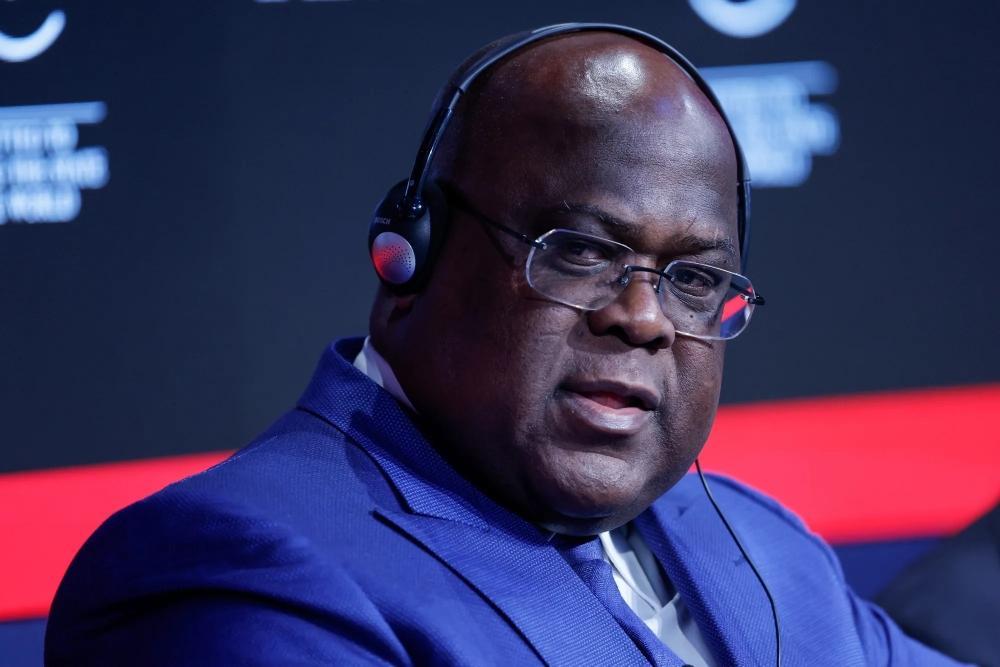Albert Rudatsimburwa
Africa-Press – Rwanda. In a widely publicized diplomatic step, the Congolese government recently signed a peace agreement with Rwanda, brokered under the leadership of the Trump administration.
At the heart of this deal was a simple, yet profound understanding: Kinshasa would dismantle FDLR, a DR Congo-backed terrorist militia formed by remnants of the masterminds of the 1994 Genocide against the Tutsi in Rwanda, and in turn, Kigali would ease its military posture at the border. More broadly, the agreement sought to bring long-awaited peace to eastern DR Congo by creating the conditions for displaced civilians and Congolese refugees to return home safely.
But barely weeks after signing the accord in Washington, President Félix Tshisekedi’s actions on the ground tell a very different story.
Instead of working toward de-escalation, Tshisekedi has intensified military preparations. The Congolese army (FARDC) continues to carry out attacks in South Kivu, while the Wazalendo militias—known for ethnically targeted violence—are regrouping and moving toward conflict zones. Military supplies have been observed being channelled through Bujumbura into Uvira.
Even more troubling, Tshisekedi has reportedly hired mercenaries from the infamous U.S.-based firm Blackwater, or its successor entities. Foreign fighters and equipment are now present in Uvira, Kisangani, Walikale, and further across in North Kivu and South Kivu provinces.
This is not the behaviour of a leader committed to peace. It is the behaviour of one preparing for war.
It is not only internal conflict that is escalating.
Tshisekedi has, on several occasions, made public statements expressing hostility toward Rwanda’s leadership—going so far as to suggest regime change in Kigali. With tens of thousands of troops, militias, and foreign contractors now stationed near Rwanda’s border, it is simply unrealistic to expect Kigali to let down its guard. On the contrary, Tshisekedi’s military posture ensures that Rwanda will remain in a heightened state of alert.
Yet this is exactly what the Washington Peace Agreement was meant to prevent. The deal was built on the assumption that Tshisekedi would seek peace at home—especially through dialogue with Congolese political-military actors like the AFC/M23—so that regional tensions could also be reduced. The M23, which emerged as a response to violence and exclusion against the Congolese Tutsi and Banyarwanda populations, now controls most of North and South Kivu, including the major cities of Goma and Bukavu. They did not initiate the war. Kinshasa did, back in late 2021. And it is Kinshasa, again, that refuses to resolve it.
Despite being militarily sidelined in the east, Tshisekedi continues to demand unconditional withdrawal from M23, while avoiding substantive negotiations. After five failed rounds of talks, it is clear he is stalling politically while preparing for a new military offensive. This completely undermines the peace framework agreed to in Washington.
So, the question must be asked: is the Trump administration comfortable watching the very agreement it brokered unravel this way? Was this the outcome Washington envisioned when it brought Tshisekedi and Rwanda to the table? An emboldened leader violating the terms of the deal, reigniting internal war, and endangering regional stability?
The purpose of the agreement was to create the conditions for the safe return of displaced populations, the dismantling of genocidal armed groups, and a normalization of relations between Kinshasa and Kigali.
Today, not a single one of those outcomes is in sight.
In fact, Tshisekedi’s actions are pushing the region in the opposite direction—toward confrontation and chaos.
He speaks of peace abroad, while waging war at home and provoking neighbours. The duplicity could not be more evident.
The Trump administration deserves credit for facilitating a potential turning point in this decades-old conflict.
But if its efforts are to mean anything, the world—starting with Washington—will need to decide whether it accepts Tshisekedi’s betrayal of the peace process, or calls it for what it is because, at this stage, Tshisekedi is not implementing the agreement. He is sabotaging it.
Source: The New Times
For More News And Analysis About Rwanda Follow Africa-Press






